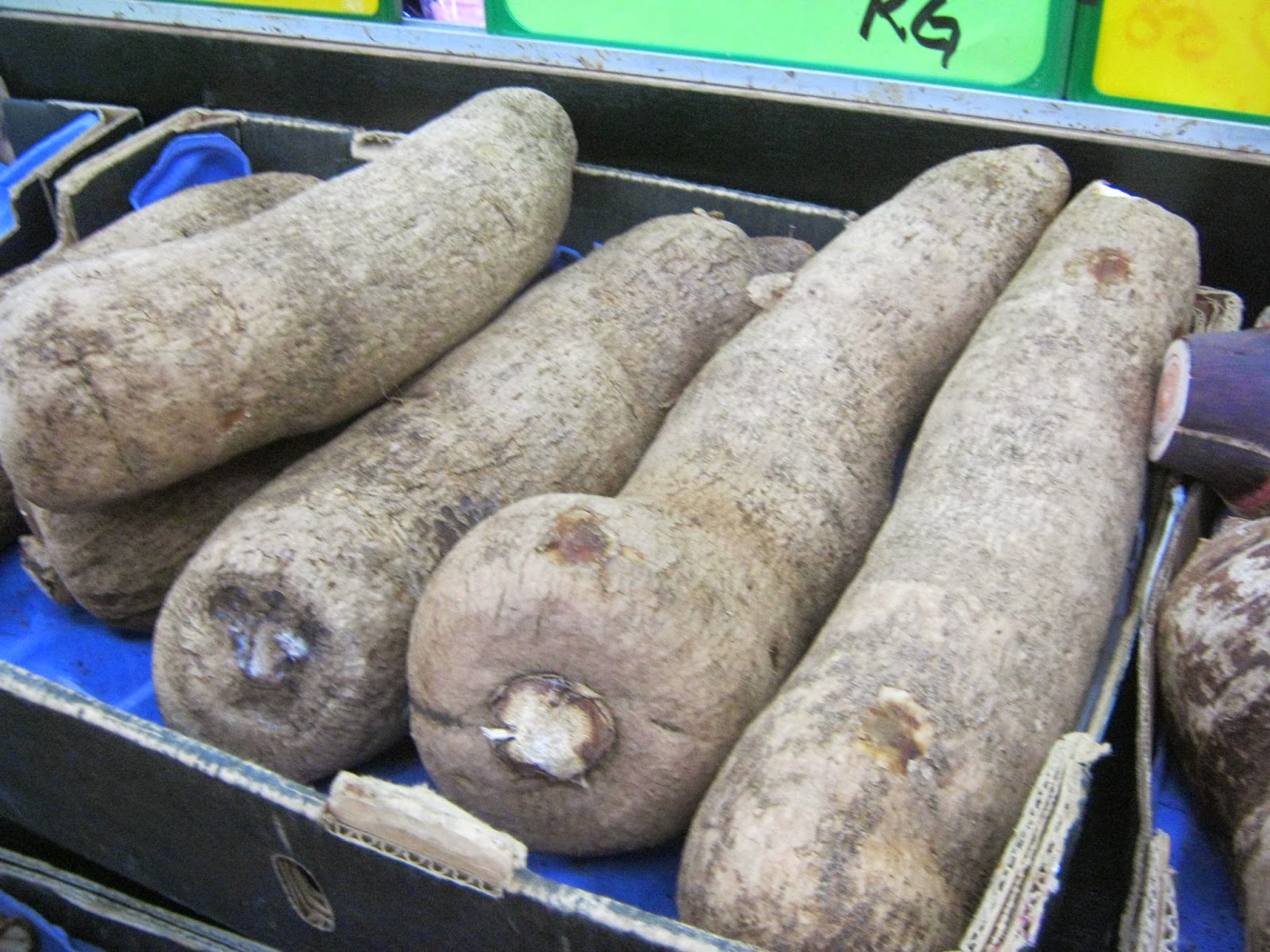During the World War II, there was an embargo on ships crossing the South China Sea. There was no rice import, an staple of the people. People planted root vegetables like sweet potato/kumara, tapioca and pumpkin as staple.
Dad said when you eat this day in and day out, withour any oil or salt, you soon get very tired of it.
The world has turned around. I like sweet potatoes , and sometimes I steam them on top of the rice.
Friday, March 18, 2016
rubber tree

some 70,000 seeds being smuggled to Kew in 1875, by Henry Wickham, at the service of the British Empire, from Brazil and stole some rubber seeds aka Hevea brasiliensi.
From those stolen seeds, they grew to supply the rubber gardens in Malaysia and Borneo.
The original rubber trees were very good, but took too long to reach a productive age. Then the good old scientist developed a smaller tree but produced more and called it high yielding tree.
My plant is a miniature tree. It's a tribute to both sets of my ancestry. It was rubber that brought them to Borneo.In 1907, my Great Grand father was scouted to lead a developing company to grow this important cash crop.
During the World War Two, trading ceased. People stitched up rubber sheets and wore them. The more enterprising ones even made shoes.
Thursday, March 10, 2016
Up side down tapioca
Manihot esculenta, with common names cassava (/kəˈsɑːvə/), Brazilian arrowroot, ... Like other roots and tubers, both bitter and sweet varieties of cassava ...
It must be properly prepared before consumption. Improper preparation of cassava can leave enough residual cyanide to cause acute cyanide intoxication and goiters, and may even cause ataxia or partial paralysis.[8] wiki
My father told me there is a
folklore that it is very important to grow them the right way up, or the
tapioca would be poisonous. It would be better not to eat them.
Tapioca is a dietary staple
in Africa, Asia and South America, and you'll also find it in beverages and
puddings in the United States. Although commercially packaged tapioca is
generally safe, the plant can be highly toxic if not prepared properly.
Tapioca naturally produces
cyanide, which is poisonous to humans; however, the cyanide may be removed
during processing. By eating poorly prepared tapioca, you may risk cyanide
poisoning according to the American Cancer Society. Symptoms include headache
and dizziness; in severe cases, you may experience convulsions or coma. It is
suggested that if a person is allergic to latex, it is best not to eat tapioca.I used this story in my World War II, about a family dying after eating the up side down tapioca.
My Ah Kung/Grandfather and his clothes
This is Myanmar's shan traditional attire. (Photo on the left) I asked permission from my friend Nang Kham Set if I can borrow the photo. She has kindly said yes.
In 1900s, all the men who left Quaang Tung to Borneo dressed like this. Frog buttons and fishermen's pants. Over time, some of them changed to wearing western clothes. My grandfather aka Ah Kung continued to wear it until he died in 1976.
When I was young, I was rather embarrassed he adhered to his Chinese culture. He was like a countrybumpkin wearing slippers/jandals.
When Bruce Lee became famous, young Sibu boys mistook my Ah Kung to be a Kung Fu Master and nagged at him to teach them Kung Fu. He was tired of them following him, one day, he opened his bamboo umbrella and they all ran away. They thought it was his Kung Fu move.
As I grew older, I am proud of my Chinese roots, and equally proud of my Ah Kung. I wrote about him in my books From China to Borneo to Beyond. In my World war II book, I fictionalised him as a hero.
In the photo, the elderly gentleman wore a fedora. I went at lengths to describe another character who wore a fedora.
Tuesday, March 1, 2016
Mum, a war bride
Rewind back to 1945:
It was the second world war, the Japanese soldiers were taking girls to be their comfort women and men to be their solider. Great Grand Ma, Ah Tai was desperate for a husband for Mum.
Ah Tai wanted the son of this Town family P.
This Town family P. didn't want a country bumpkin girl to be a daughter in law.
It was not meant to be that he should be my dad.
Instead the next best was country bumpkin Dad.
So Ah Tai chose Dad.
This country Bumpkin was the best choice after all.
He was the first in the region to get a scholarship to study in England, and became a senior government officer.
All of us were college educated. None of the children of that Townie man went abroad. Whew!!!!
It was the second world war, the Japanese soldiers were taking girls to be their comfort women and men to be their solider. Great Grand Ma, Ah Tai was desperate for a husband for Mum.
Ah Tai wanted the son of this Town family P.
This Town family P. didn't want a country bumpkin girl to be a daughter in law.
It was not meant to be that he should be my dad.
Instead the next best was country bumpkin Dad.
So Ah Tai chose Dad.
This country Bumpkin was the best choice after all.
He was the first in the region to get a scholarship to study in England, and became a senior government officer.
All of us were college educated. None of the children of that Townie man went abroad. Whew!!!!
Subscribe to:
Comments (Atom)




